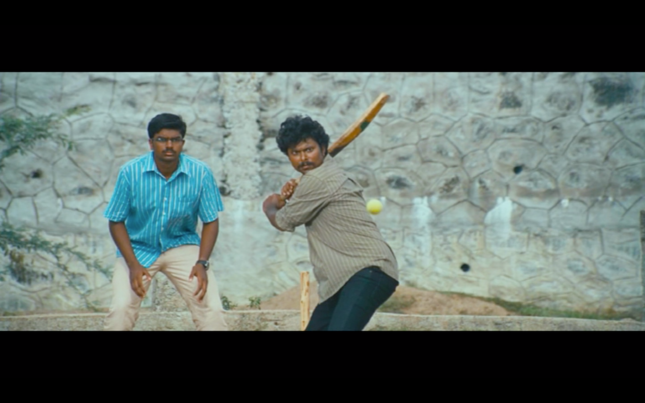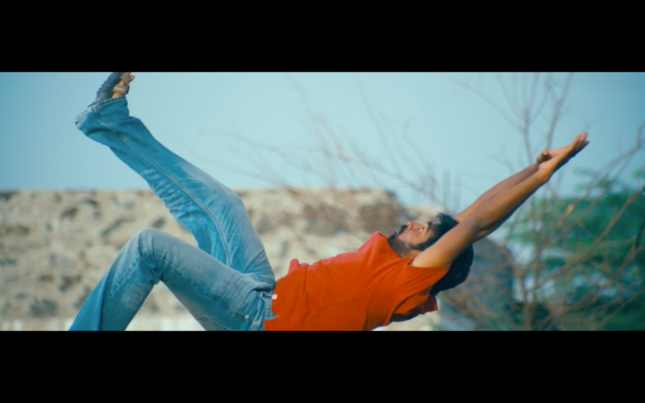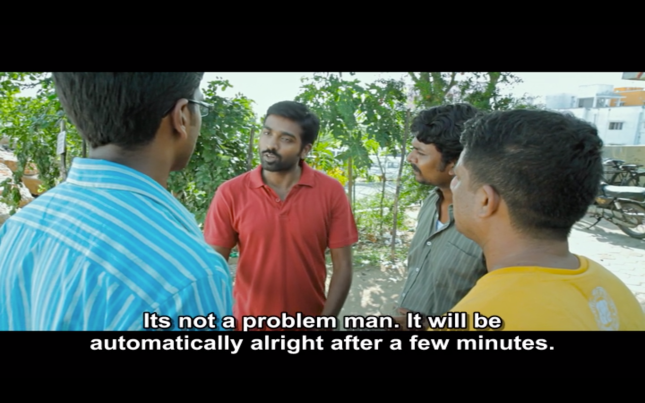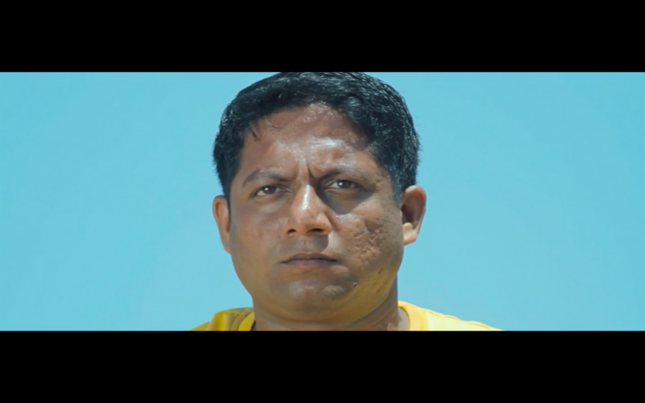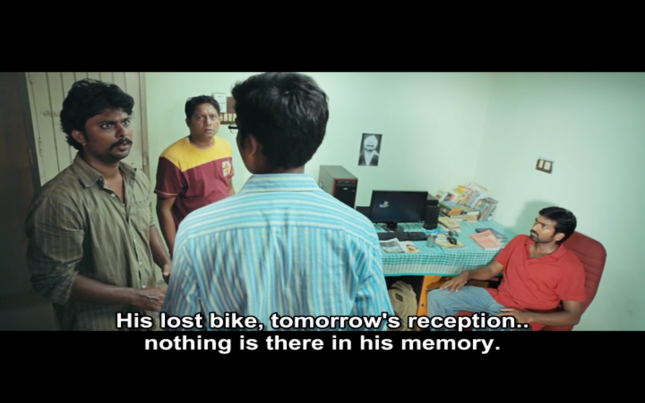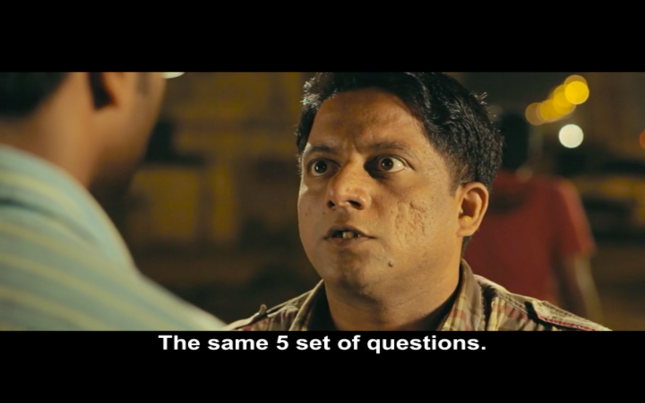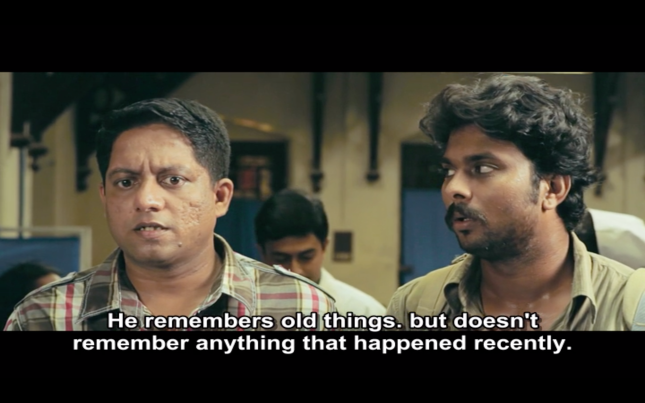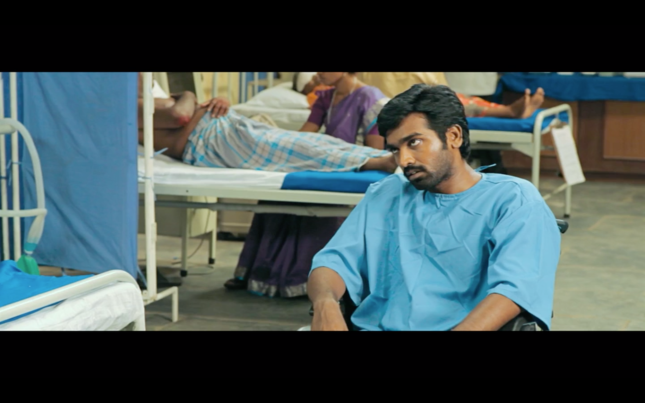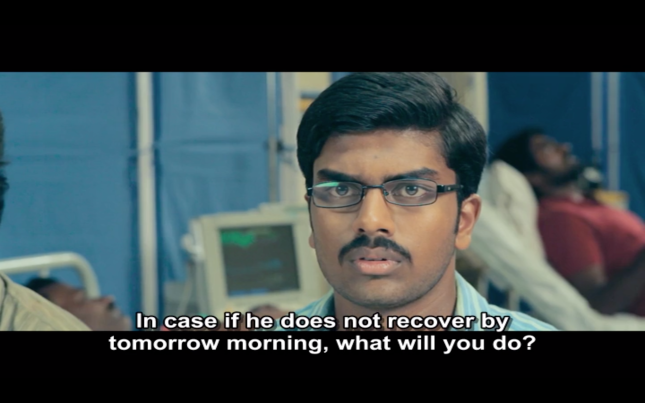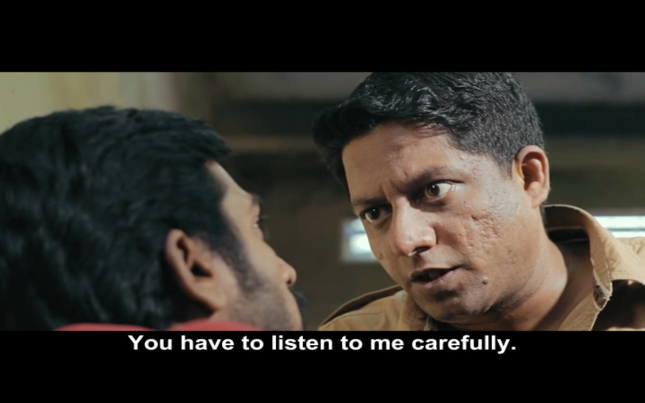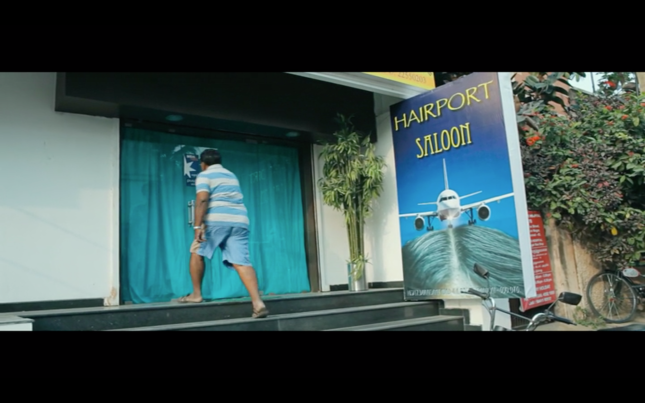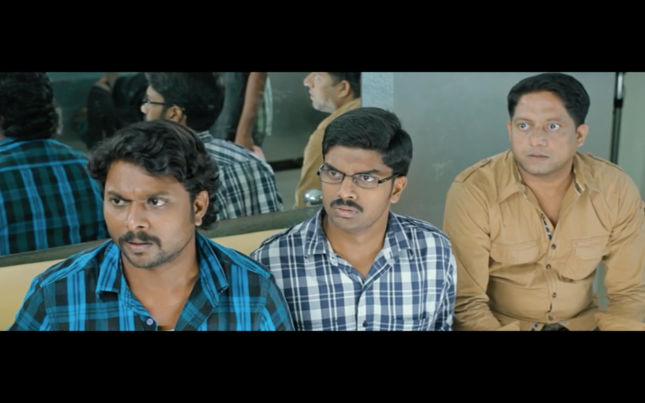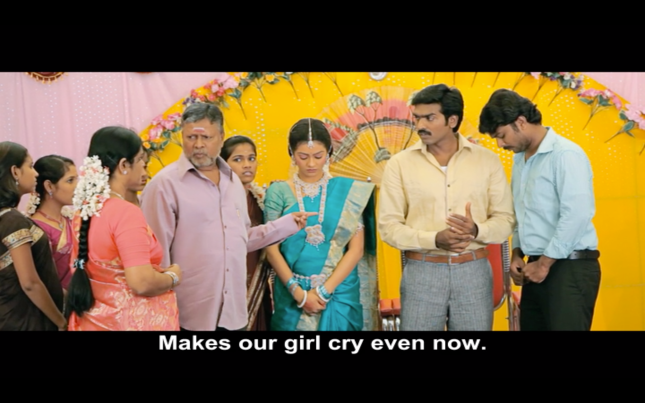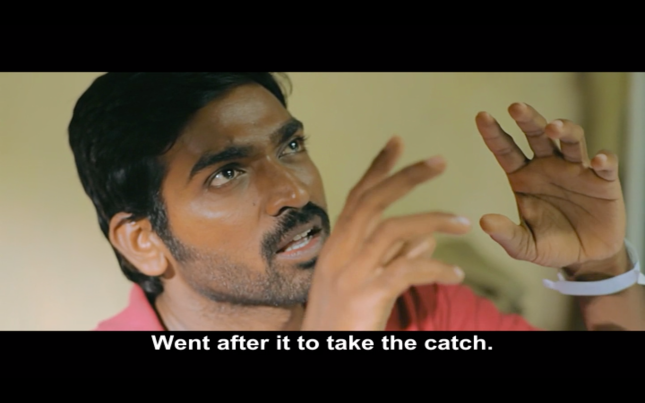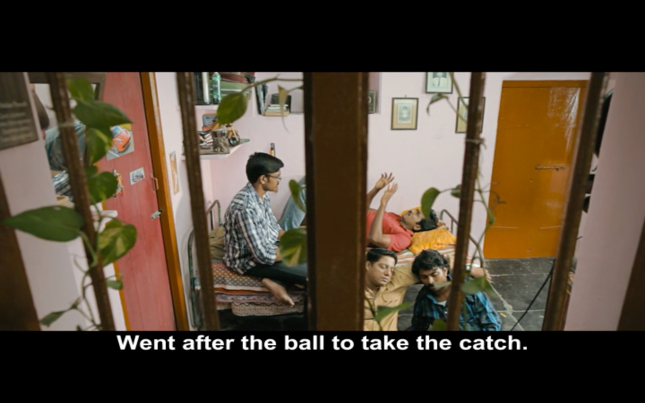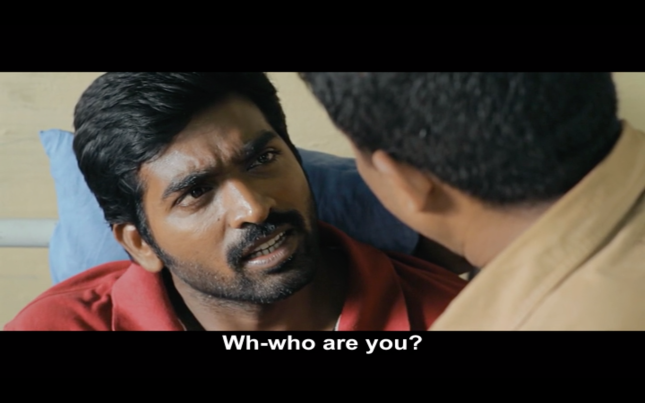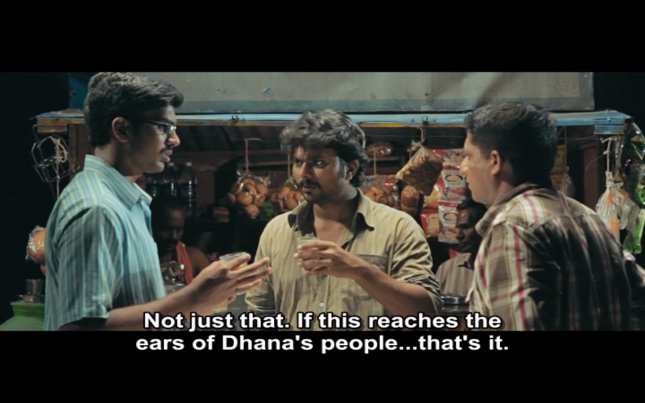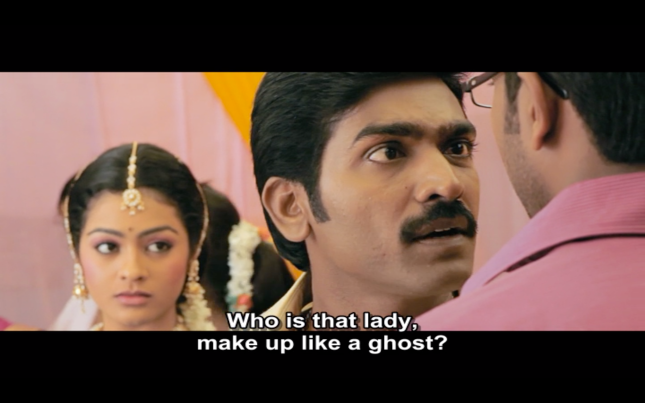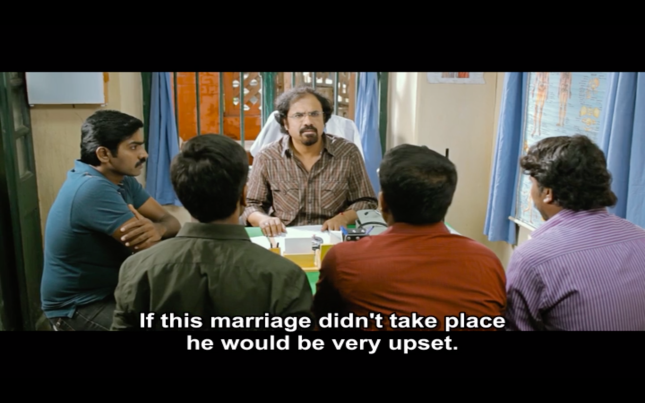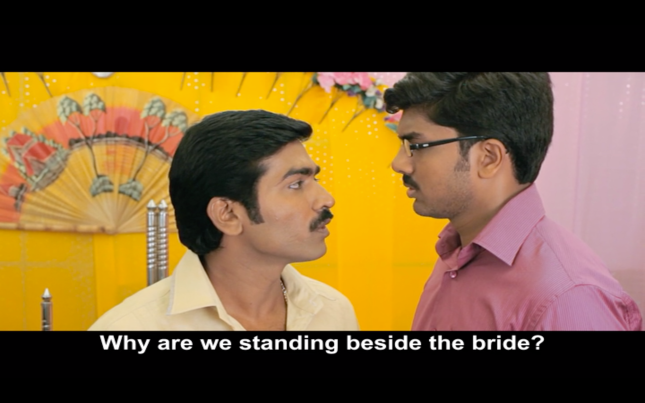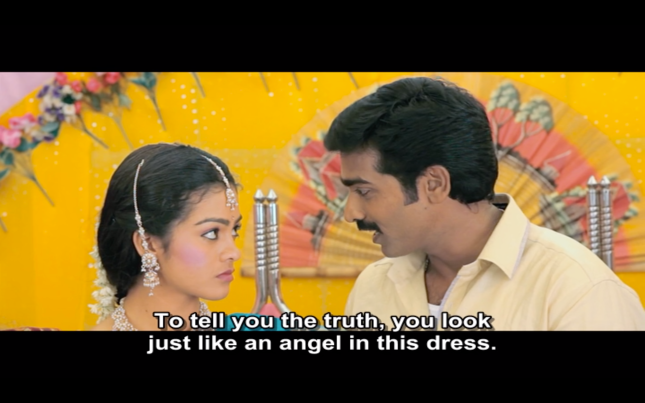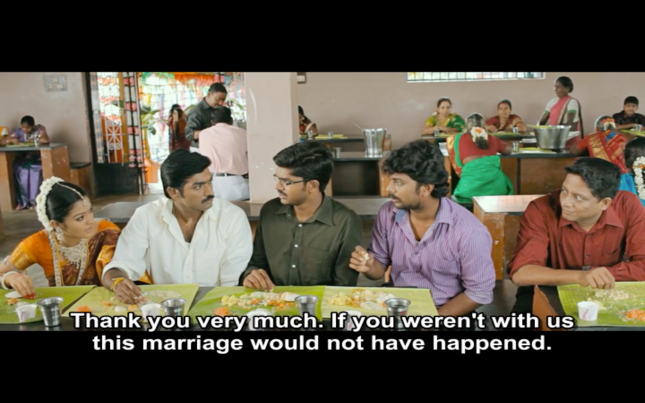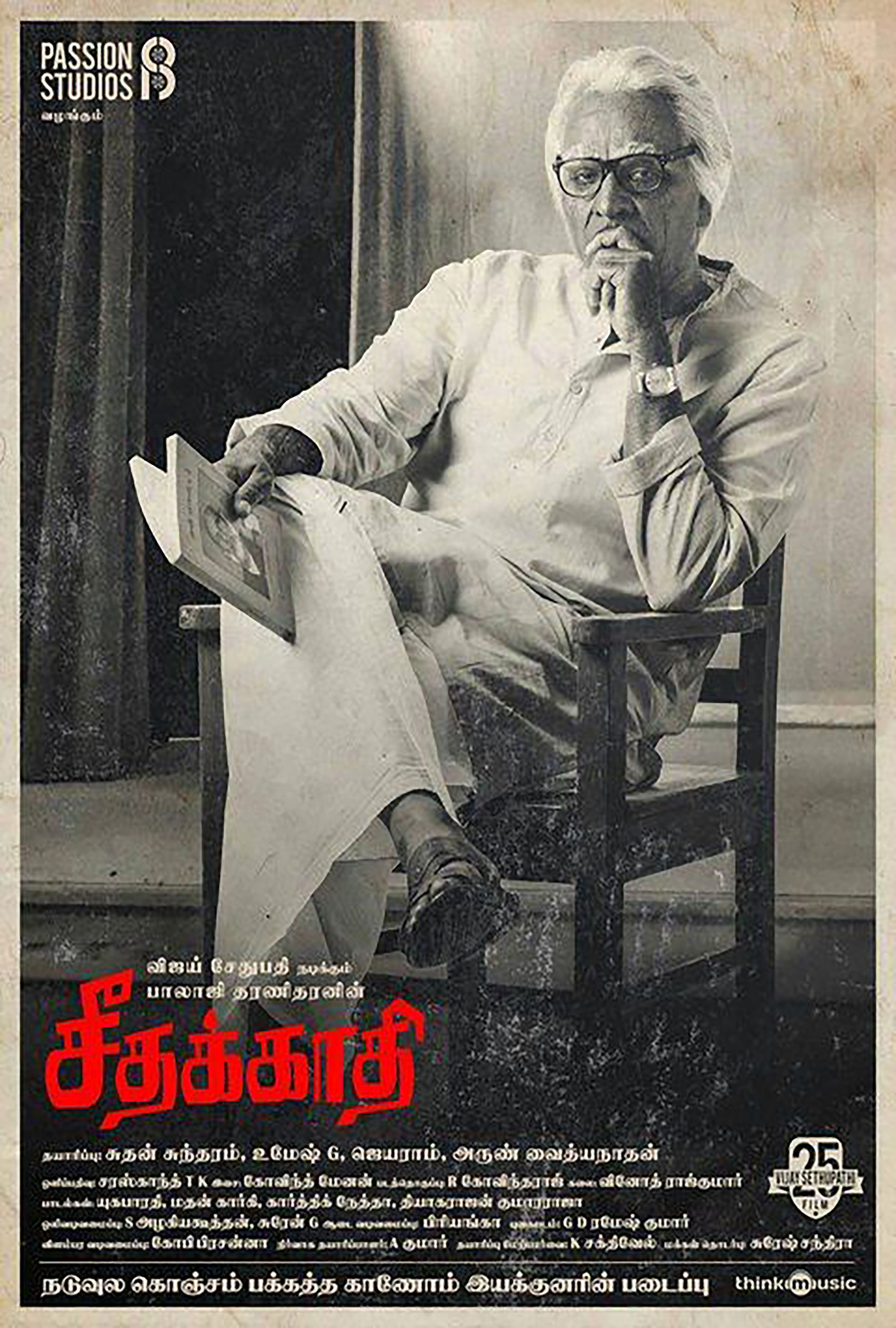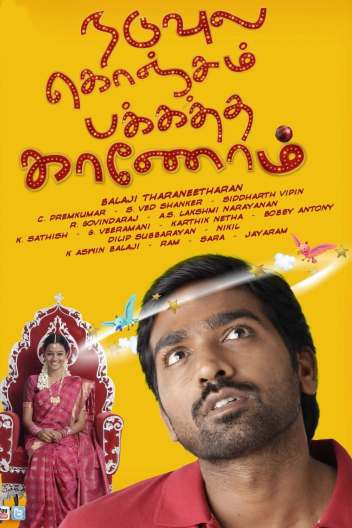
After tracking down a subtitled copy of Balaji Tharaneetharan’s début film, it took a little while to get around to watching the film. The synopsis wasn’t terribly inspiring; ‘a young man experiences retrograde amnesia after a cricket incident two days before his wedding’ and so, despite the presence of Vijay Sethupathi, I didn’t put it straight to the top of the pile. But I really should have known better. While not quite as good as Balaji Tharaneetharan’s later film Seethakaathi, NKPK has plenty of quirky humour and the story is much better than the one-line summary suggests. It’s funny, well told and best of all, the film is actually based on a true story that actually happened to one of Balaji Tharaneetharan’s friends. In fact the real-life Prem is the film cinematographer C Prem Kumar, while Bagavathi Perumal plays his real-life role as Prem’s desperate friend.
The plotline of the story really is as simple as the synopsis suggests, and yet there is so much more happening as Prem’s friends hide his amnesia from his bride-to-be and her family. And yet, the funniest part of the film isn’t the absurd lengths his friends go to in ensuring that no-one knows Prem has lost his memory. Rather it’s the baffled expressions on Prem’s face as he struggles to understand what is going on, and his repeated dialogue of the last few moments he can remember before he hit his head that raise the biggest laughs. Medulla oblongata has never sounded so funny!
The film starts with Prem discussing his problems with his friends, Bugs (Bagavathi Perumal), Saras (Vigneshwaran Palanisamy) and Balaji (Rajkumar). It’s a couple of days before Prem’s wedding and he’s worried because his fiancée’s family don’t like the match, his bike’s been stolen and he’s having problems with his boss. To take his mind off his woes, the friends decide to go and play a game of cricket, which Bugs takes far too seriously, while everyone else struggle to even hit the ball. But then, when running back to take a catch, Prem falls and hits his head. He seems fine, but as the friends are heading back home, Saras realises that something might be wrong. Prem keeps repeating the same thing, over and over again, with exactly the same phrasing and timing. He can’t remember that his bike has been stolen, and worst of all, he has no idea who his fiancée Dhanalakshmi (Gayathrie) is.
Because it’s a love marriage and the parents don’t approve, Bugs, Saras and Balaji spend the next few days doing absolutely everything they can to make sure no-one finds out and stops the wedding. They take Prem to a doctor who tells them that Prem could regain his memory at any time, or could potentially never remember, which means that they are continually on tenderhooks, waiting for that moment when Prem finally regains his memory. But instead, he just keeps going back to the moment when he falls and hits his head.
The friends are absolutely sure that Prem will be devastated if the wedding doesn’t take place, which seems a strange motivation for the extremes they go to, which even includes Saras jeopardising his own potential romance. But at the very end, there are stills of the actual wedding that the story is based upon, and by that stage it really does all make sense.
Vijay Sethupathi is simply amazing here, and brilliantly shows his internal confusion as he tries to work out what is going on, before losing the struggle and going back to the moment when he fell. His facial expressions are perfect, and I don’t know how he managed to keep repeating the same dialogue over and over again without cracking up laughing. The moment when he sees his bride and thinks she looks dreadful in all her makeup is sad and funny all at the same time. The writing is so well done that it’s possible to really feel for Dhanalaksmi and understand her hurt at Prem’s reaction, while still finding Prem’s comments hilariously funny.
Gayathrie doesn’t have very much to do, except stand beside Prem during the wedding, but she is such a talented actress, that even with little dialogue she gets across Dhanalaksmi’s love for Prem and also her despair at his attitude on her wedding day. The friends all have their own personalities, but it’s Vigneshwaran Palanisamy as Sara who really stands out as being the driving force behind the various schemes to shield Prem.
This is simply inspired and a very funny story which has been put together very well. The entire film only covers three days, a cricket match and a wedding, but despite being a little slow to start, once Prem loses his memory, there is a lot to enjoy. There are so many jokes, both visual and in the dialogue, but through it all, it’s Vijay Sethupathi who really stands out as a terrific performer. There is some real tension because the outcome of the wedding, Prem’s future and even his relationship with his friends is always in doubt, right p to the end. This is just a fun film and I recommend it to anyone who needs something to make them smile. 4 stars.
